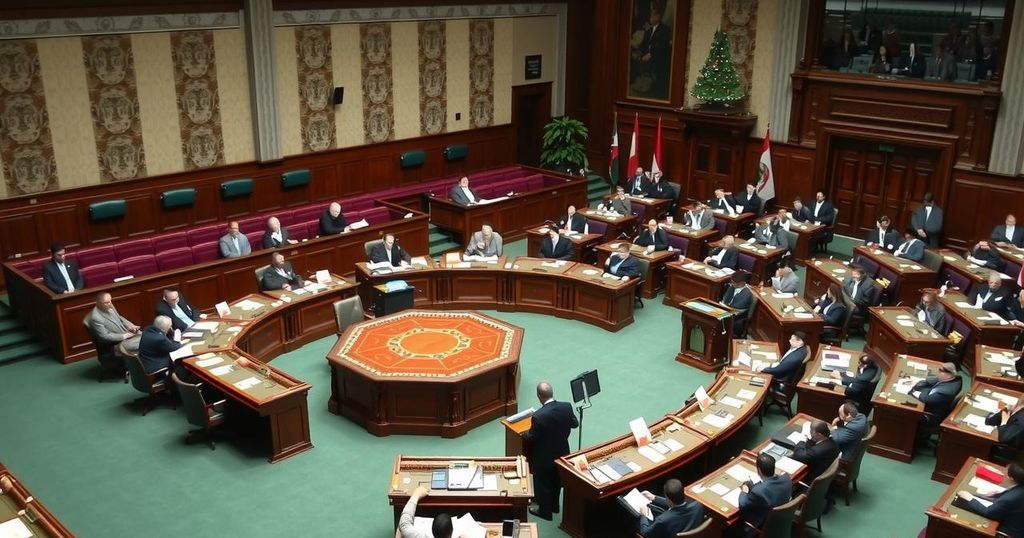Lebanon’s Parliament Poised to Elect New President After Two-Year Void

Lebanon’s parliament may elect a new president, Joseph Aoun, after a two-year vacancy post-Michel Aoun’s presidency. Aoun, favored by the U.S. and Saudi Arabia, faces procedural challenges due to constitutional rules. This election is crucial for forming a new government amid a severe economic crisis.
The Lebanese parliament is set to vote on a new president following a two-year vacancy after former President Michel Aoun’s tenure ended in October 2022. Joseph Aoun, the Lebanese Army commander, has emerged as the leading candidate and is favored by both the United States and Saudi Arabia. Despite a history of failed attempts to elect a new leader — with 12 previous votes unsuccessful — optimism surrounds this vote, especially after competing candidate Suleiman Frangieh withdrew his candidacy to endorse Aoun.
Lebanon’s political landscape has been characterized by a complex sectarian power-sharing arrangement, often leading to deadlocks in leadership selections. Historical precedents have seen extended presidential vacancies, with the last significant interruption lasting nearly two and a half years from May 2014 to October 2016. Should Joseph Aoun be elected, he will face procedural challenges due to constitutional restrictions on serving army commanders holding the presidential office. Achieving the necessary two-thirds majority in the House will be critical for his candidacy.
In addition to Aoun, contenders such as former Finance Minister Jihad Azour and Elias al-Baysari, the acting head of Lebanon’s General Security, are also in the running. The new president will be instrumental in appointing a prime minister and a cabinet capable of addressing Lebanon’s pressing economic crises and the aftermath of the Israel-Hezbollah conflict.
Lebanon has been grappling with a prolonged political vacuum following the end of Michel Aoun’s presidency in October 2022. A series of unsuccessful presidential votes due to sectarian divisions and political maneuvering have hindered the formation of a stable government. The economy remains in turmoil six years into a financial crisis, exacerbated by a lack of leadership and reforms. Joseph Aoun’s emergence as a viable candidate reflects shifting political alliances and external influences, given the support he has garnered from key international players like the United States and Saudi Arabia. The new president’s ability to navigate constitutional challenges, alongside the pressing needs of the nation, will be pivotal going forward.
The Lebanese parliament’s attempt to elect a president marks a critical juncture for the nation, potentially concluding a two-year leadership vacuum. Joseph Aoun’s candidacy, bolstered by a withdrawal of competition from Suleiman Frangieh, indicates a possible shift toward a new governance structure supported by international stakeholders. However, constitutional restrictions and the pressing socio-economic challenges facing Lebanon will require adept leadership to restore stability and implement essential reforms.
Original Source: www.hindustantimes.com






